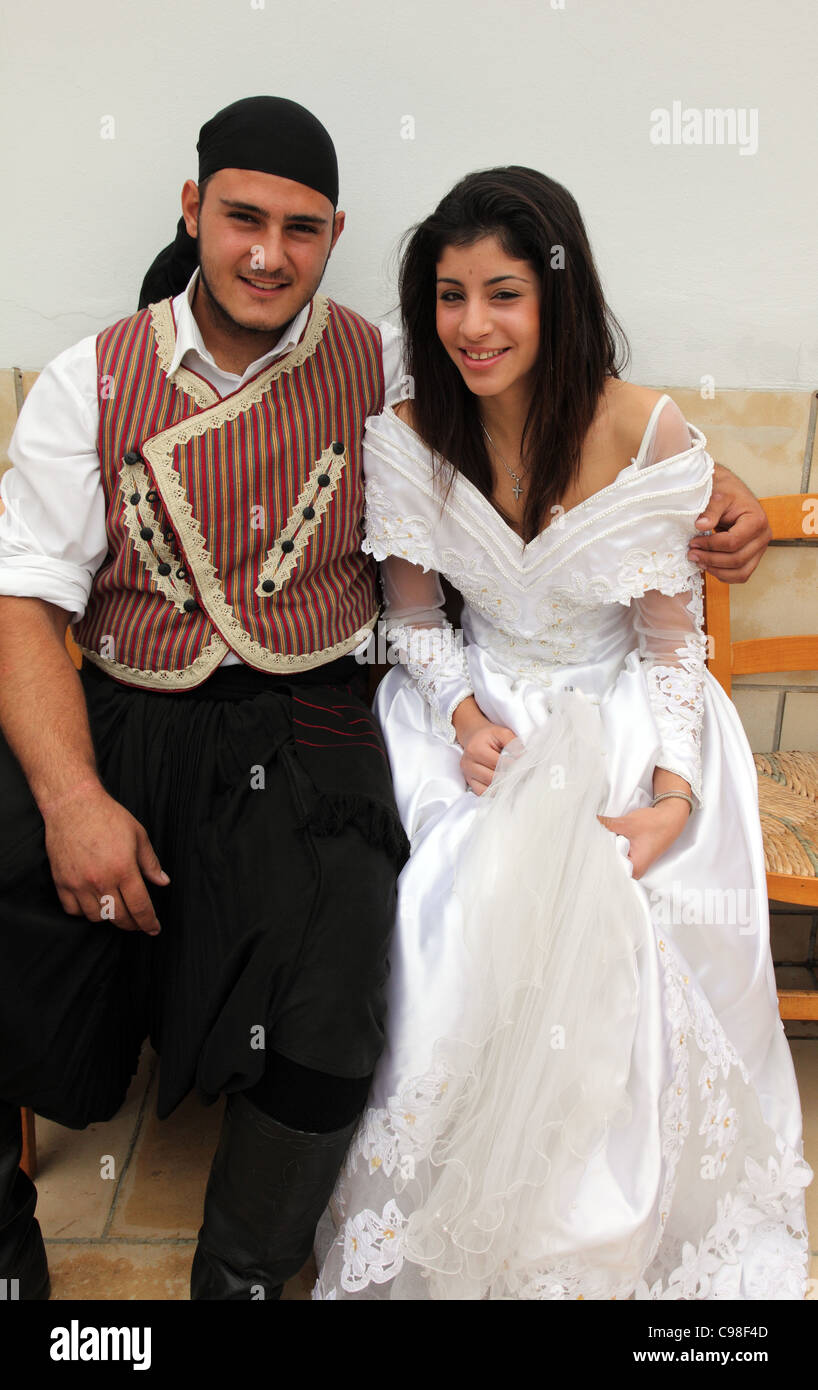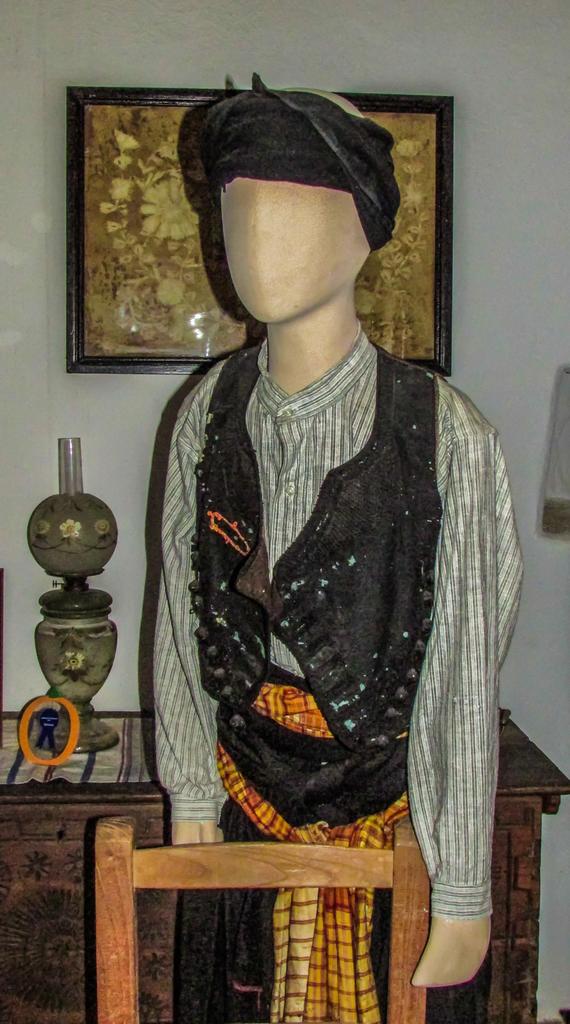
Cyprus folklore dancers. Turkish clothing, Traditional outfits
20 Apr Introduction Traditional Cypriot Clothing is an essential part of the island's rich cultural heritage. It reflects the customs, traditions, and lifestyle of the Cypriot people throughout history. The clothing is not only beautiful to look at but is also a vital aspect of Cypriot identity.

Costumes of Cyprus Folk Dance, Dance Music, Greek Traditional Dress
Cyprus, taking influence from all over Europe, offers up a Grecian twist to traditional clothing. And that's Socratous' style. On a short drive to the southernmost part of Cyprus sits Limassol. Tourists and natives flock to the beaches to relax over a long weekend. In a party mecca deep inside the Old Town, bars offer up bass-ridden dance.

Traditional festive costumes from Cyprus. 19001950. These are recent
Traditional Trousers ("Vraka"): It was produced by a thick "thimito", a cotton handmade cloth; they sewed and used enough pieces so that it looked tufted. According to a traditional Cypriot song, "Saranta (40) pihes thimito ekaman mou mia vraka…" the cloth used is mentioned thus emphasizing the richness of the trousers.

Παραδοσιακές ενδυμασίες από την Κύπρο Traditional folk costumes from
Culture. Cypriot Customs and Traditions. 10654. Author: Evgenia Bravo. Translation: Maria Charnaya. 15.04.2018. The majority of the population of Cyprus is comprised of two main ethnic groups: Greek Cypriots and Turkish Cypriots. Most of the island residents (about 80%) — Greek Cypriots — are descendents of the Achaeans and the Mycenaeans.

national costume in Cyprus, Greece Greek costume, Fashion
MALE COSTUMES. There are very few distinct regional differences in the male costume of Cyprus. Its basic components are the densely pleated baggy trousers, vra'ka, which held sway in all the C,reek islands, and the waistcoat, yilekko, or jacket, zibouni. Yet this apparent uniformity is punctuated by some local features, manifest in the size of.

Traditional cypriot costume hires stock photography and images Alamy
Martoui is a well-known tradition of Cyprus, Greece and some Balkan regions. Martoui is a bracelet made of twisted red and white thread (red symbolising love and beauty and white, purity). Children make their bracelets on the last day of February and wear them on the 1st-31st of March. According to the tradition, the Martoui protects the children from the first signs of sun in spring, and from.

Free Images cyprus traditional clothing man
Designs inspired by Cyprus' cultural heritage. By Alix Norman May 2, 2022 0 1913. Our greatgrandparents lived in a circular economy, upcycling items of clothing, a practice a new project hopes.

Traditional Cypriot women's clothing includes the "saiya," a dress worn
Things to do Villages Recipes Cypriot costumes have a conservative look, usually covering most of the body however the patterns and details of the costumes are quite diverse and elaborate. Each costume is a complexed work of art, which implements various weaving techniques and decoration as well as the craftsmanship from its creators.

traditional folk clothing from the Turkish Republic of Northern Cyprus
"1st of May" is one of Cyprus's most beautiful traditions. By the arrival of that day people of the island celebrate the blossom of nature and they honour that by creating wreaths of flowers wich they hang on the central door to welcome spring in their houses and hearts.

Traditional costumes of Cyprus Cyprus Passion
The smashing of plates is an old time Greek tradition which spread to many of the Greek islands including Cyprus. Demonstrated at weddings, and other parties and celebrations, plates would be thrown to the floor and smashed while singing and dancing.

Traditional festive costume from Cyprus. Style early 20th century
Habits, mentality and the way of living. The majority (80%) of the population of Cyprus are Greek Cypriots, most of whom are Orthodox Christians. The other ethnic group of the Republic is the Turkish Cypriots, who are mostly Muslim. All Cypriots are proud of their religion. The Cyprus Constitution guarantees freedom of religion.

Cyprus Traditional Clothing / Cyprus / Aegean island female traditional
Men in Cyprus wear silk shirts, waistcoats called "zimbouni", baggy cotton trousers called "vraka", woven belts called "zostra", fez hats, socks and shoes, and some kind of outerwear as traditional attire. The traditional shirts are typically silk, especially festive garments. Cheaper fabrics like cotton can be used as well for day-to-day shirts.

Traditional costumes of Cyprus Cyprus Passion
Join us as we journey through the vibrant tapestry of Cyprus' traditional attire. Women's clothing. The traditional Cypriot women's attire, known as 'sayia', is a long-sleeved garment that is a significant feature of the costume. It has two main variations originating from Paphos in the west and Karpasia in the east of Cyprus.

Cyprus Greek traditional dress, Costumes, Traditional dresses
The Cypriot traditional costume is tightly connected with the history of the people of Cyprus, projecting the culture, handmade materials as well as individually embroidered. George Orphanos, the founder of this workshop followed the history of these costumes and reproduced identical reproductions giving continuity of our tradition. Ladies.

Cyprus Folkdancer Portrait in Colorful Dress Editorial Stock Image
Geography has left Cyprus heir to numerous culinary traditions—particularly those of the Levant, Anatolia, and Greece—but some dishes, such as the island's halloumi cheese, pourgouri (a dish of boiled cracked wheat), hiromeri (a pressed, smoked, and aged leg of pork), and sucuk (a confection made of thickened grape juice and almonds), are purely.

Traditional Cyprus Dancer Cyprus
The woman was busy in the fields and at home. And these influences determined her attitude and behavior, the way she dressed, the colors of her clothes ". Elena Daniel puts another parameter in our conversation. That of the Cypriot woman's attitude towards the English tyrant. "The British did not like Cypriot clothing.